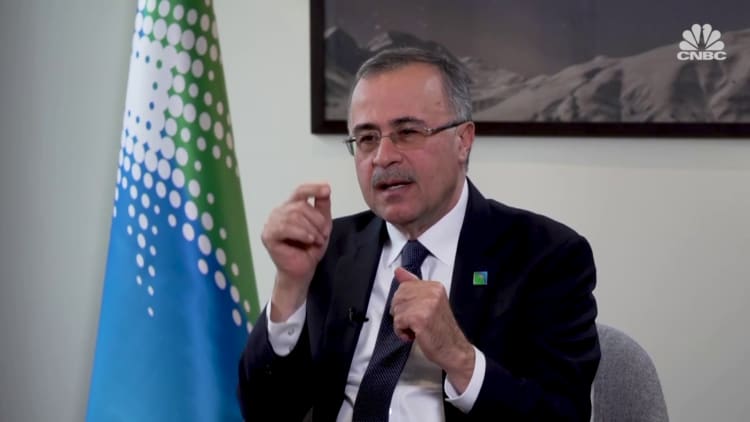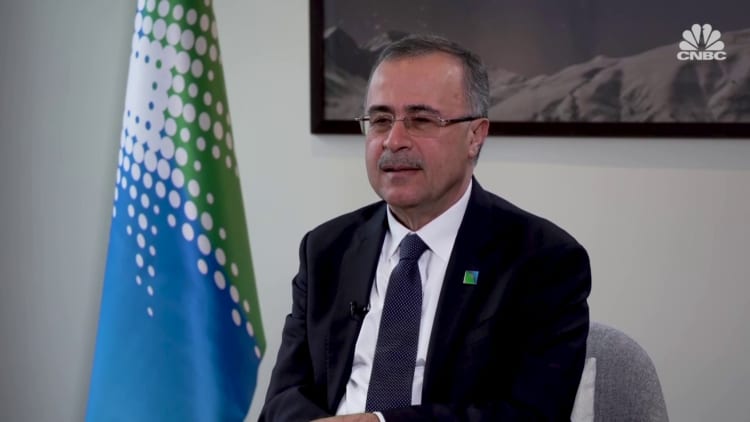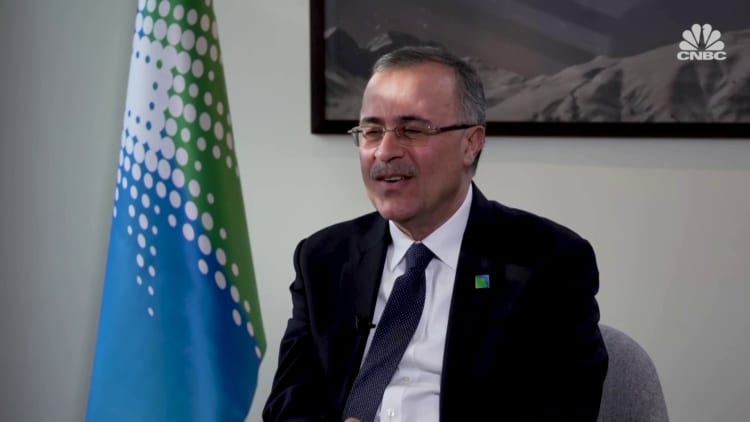Oil giant Aramco says windfall taxes ‘not helpful’ and could stifle decarbonization

Pressuring oil companies through higher taxes is counterproductive at a time when global crude demand is set to outstrip supply, the CEO of Saudi Aramco, the world’s largest and most profitable energy company, said during the World Economic Forum in Davos, Switzerland.
Asked by CNBC’s Hadley Gamble if a windfall tax on oil profits is a bad idea, Amin Nasser replied:
“I would say, it’s not helpful for them [in order] to have additional investment. They need to invest in the sector, they need to grow the business, in alternatives and in conventional energy, and they need to be helped.”
The CEO added that the green transition also required investment, which he said is likely to take a hit if companies face increased taxation.
“Decarbonizing existing resources also costs a lot of money,” he said. “So we need to see the support from the policymakers, and from the capital markets at the same time. Capital markets [are] putting a lot of pressure also on these companies, where it makes it too difficult for them to make some of these investments and get the right funding and capital.”
Policymakers in a number of countries are calling for windfall taxes on major oil and gas companies, many of which saw record profits in the last year, as supply shocks and years of underinvestment in the sector pushed prices to multi-year highs.

Debate surrounding the oil industry has been dominated by tensions between a desire for cleaner energy sources to combat climate change and the need for energy security, as demand for fossil fuels remains high.
The latest oil market report from the International Energy Agency out Wednesday forecast global oil demand will increase by 1.9 million barrels per day in 2023 to reach a record 101.7 million barrels per day — while oil supply growth is set to slow to 1 million barrels per day in that same period.
The UN Intergovernmental Panel on Climate Change warned that fossil fuel emissions must halve within the next decade, if global warming is to be contained to 1.5 degrees Celsius above pre-industrial levels. According to the panel, roughly 90% of global CO2 emissions come from fossil fuels and the heavy industry.
In October, a research team led by Oregon State University reported that several of the planet’s vital signs have reached “code red” and that “humanity is unequivocally facing a climate emergency.” Their report found that, in 2022, carbon dioxide content in the atmosphere reached a level that has not been seen in millions of years.

The drop in hydrocarbon deliveries to Europe, following EU sanctions against Russia, revealed just how vulnerable much of the world remains before energy supply shocks. Homes and businesses are facing record-high energy costs, while renewables are not yet able to fill in that gap.
Aramco’s Nasser pointed out that concern over energy security last year pushed some European countries to reopen their coal mines — huge sources of carbon emissions — with coal hitting its highest global consumption level on record in 2022.
The CEO said he believes in the importance of the energy transition, but that balance is required to reach that endgame:
“There’s no doubt, transition needs to (happen),” he told CNBC. “At the same time we need… to build oil and gas, while at the same time [we] decarbonize oil and gas. We need support for alternatives. But at the same time, we need the support or the conventional sources of energy by building carbon capture and storage and giving incentives and support by policymakers.”
He added, “they should not call it the short term. They should really extend their support that these things will co-exist for the long term.”
Nasser reiterated what he called the “energy triangle”: “Security, affordability, and sustainability. At the heart of that is climate change,” he said. “You cannot meet climate change aspiration without these three elements, which is security of supply.”
For all the latest World News Click Here
For the latest news and updates, follow us on Google News.

